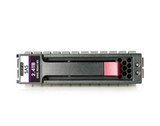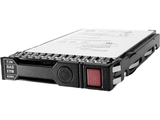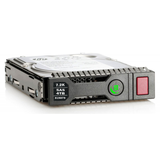Business Network Guide: Understanding Hybrid Cloud Network
A hybrid cloud network uses both cloud services and on-premises IT resources to support the movement of workloads and data. Just as the name suggests, a hybrid cloud network uses a hybrid cloud or the combination of private and public clouds along with on-premises IT infrastructures.
What is Hybrid Cloud Computing?
The advancement in virtualization technology helped cloud computing improve into a feasible and cost-efficient solution for business networks.
Hybrid cloud computing creates an environment that offers flexibility by allowing businesses to use both public and private networks for their operations.
Since hybrid cloud computing uses both on-premises and cloud storage, it creates a more secure and efficient storage solution for business networks.
For instance, your company can store sensitive data on-premises or on a private cloud while other information and files can be stored in a public cloud which is more affordable in price.
Hybrid Cloud Network Performance
The performance of your hybrid cloud network depends on optimizing how your application components run.
One way to optimize performance is by grouping applications into workloads including your databases, and programming and user interface.
You should group your business applications in a way that makes using them easier.
Understanding Hybrid Cloud Architecture
A hybrid cloud network architecture consists of the following:
- private servers
- public cloud virtual servers
- a network that connects them
MPLS or Ethernet connections are often utilized by public cloud providers to move data around between the client’s private cloud and the service provider’s public cloud.
Note that meeting fluctuating network bandwidth requirements and accelerating provisioning requires automation.
Benefits of Hybrid Cloud Networking
Here are some of the benefits of using hybrid cloud networking for your business:
Agility and Scalability
Hybrid cloud networks are flexible and agile. The network can handle surges in computing demand, all you need to do is to scale up your on-site infrastructure to a public cloud. This type of network allows you to expand without giving third parties access to all your data.
Security
Hybrid cloud networks are secured. This type of cloud network allows your business to protect sensitive applications and data while still allowing you to use the flexible and more affordable computing power of the public cloud for less sensitive tasks and information.
Cost Efficiency
Hybrid cloud networks utilize public cloud which is a more affordable option rather than investing in a huge physical infrastructure right off the bat.
Things to Consider Before Switching to a Hybrid Cloud Network
Although a hybrid cloud network sounds like a compelling solution for your business, you need to understand the potential complexity of the technology.
Here are some things to consider when shifting to a hybrid cloud environment:
Scalability
You need to determine which of your business workloads are scalable and the best way to scale them.
Stability
Determine the type of data or activities that affect the reliability or stability of your network. Stability is an important factor since your network is meant to support many users, file sharing and storing, etc.
Functionality
Make sure that all your public cloud–hosted applications meet business requirements. Ensure that all your applications are working properly.
You also need to check if all your applications run efficiently on different platforms or cloud providers.
Data limitations
Determine the limitations of grouping data in your workloads. Find out if any of the groups work better using traditional interfaces.
Management
Identify the method you can use to manage clusters of workloads over a long time.
Security
Security is one of the benefits of using a hybrid cloud network. You can protect your sensitive data by keeping it in your private on-premise infrastructures.
However, you can still explore methods to fortify the security of your business data. However, you need to determine how your security solution affects your hybrid cloud network’s performance.
Best Practices for Better Hybrid Cloud Network Security
Some cloud services offer security features. However, you can implement your own cloud security strategies to secure all your business files and company data when using a hybrid cloud network.
Here are some best practices for better hybrid cloud network security:
Encrypt your data.
Most-- if not all-- cloud service providers offer this feature since data encrypting is necessary to secure data in the cloud.
Manage who can access data.
Apply distributed access controls for applications and data when it moves off-site or to the public internet. You can apply any role-based access control there is, then make sure that sensitive information is secured both at rest and in motion.
Store sensitive data correctly and carefully.
Private clouds and on-premises infrastructure are great for storing sensitive data. You should plan how your security can include restrictions on lateral movement within the network.
This plan makes sure that other parts of the network remain inaccessible even if one part of the network is compromised.
Test your security measures.
Conduct a penetration test to ensure that you have covered every single vulnerability that could affect your company or users.
You can either simulate activity from a malicious user or utilize third-party tools to test and determine any potential breaches.
Conclusion
A hybrid cloud network offers scalability and security. Although it is far from perfect, its cost-efficiency makes it a good option for businesses.
The right resources and expertise can help you deploy a hybrid cloud network which can open up many new opportunities for business potential and agility.
Recent Posts
-
Powering Enterprise Storage: Unleashing Performance with the HPE 2.4TB 10K RPM SAS-12Gbps HDD
Introduction In the modern era of enterprise data storage, businesses require high-performance, reli …Mar 13th 2025 -
Maximizing Storage Efficiency: The HPE 1TB 7200RPM SAS-12Gbps Smart Carrier Midline Hard Drive for ProLiant Gen9 & Gen10 Servers
Introduction In today's fast-paced business environment, reliable and high-performing storage s …Mar 12th 2025 -
Maximize Your Server Performance: HPE 4TB 7200RPM SAS Hard Drive for ProLiant Gen8, Gen9, and Gen10
Introduction For businesses relying on Hewlett Packard Enterprise (HPE) ProLiant servers, storage so …Mar 11th 2025




